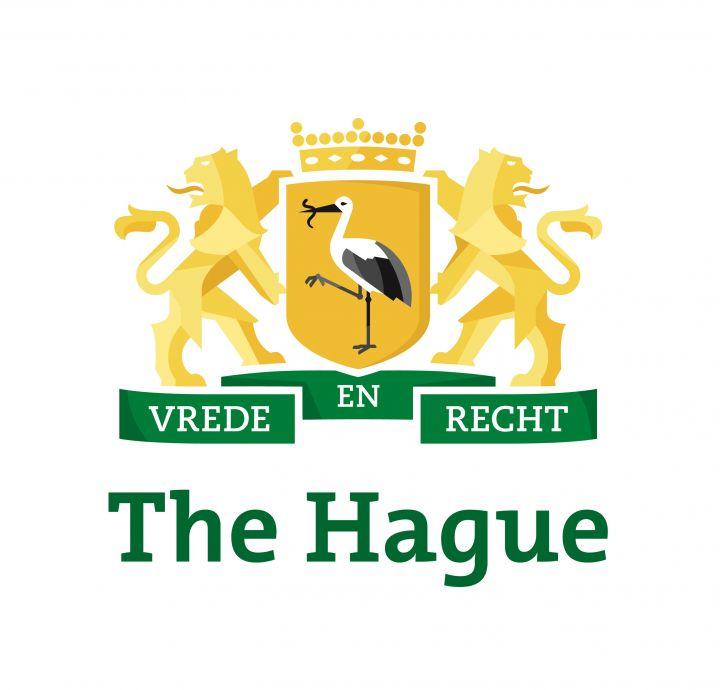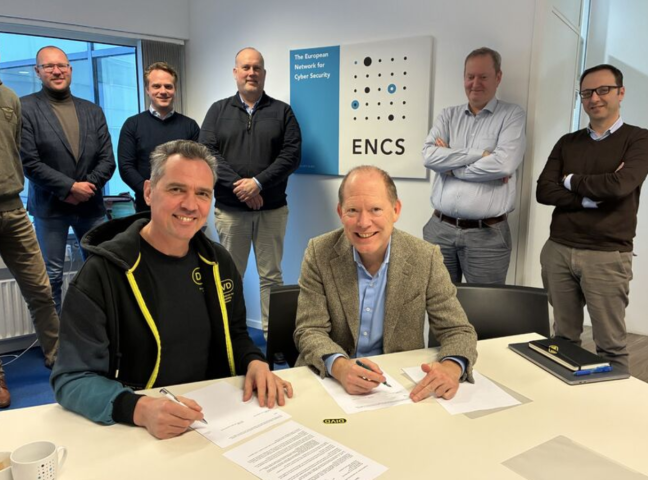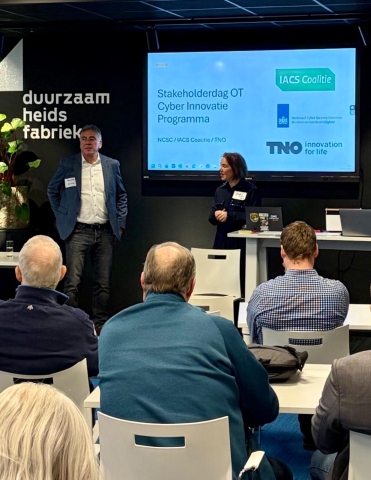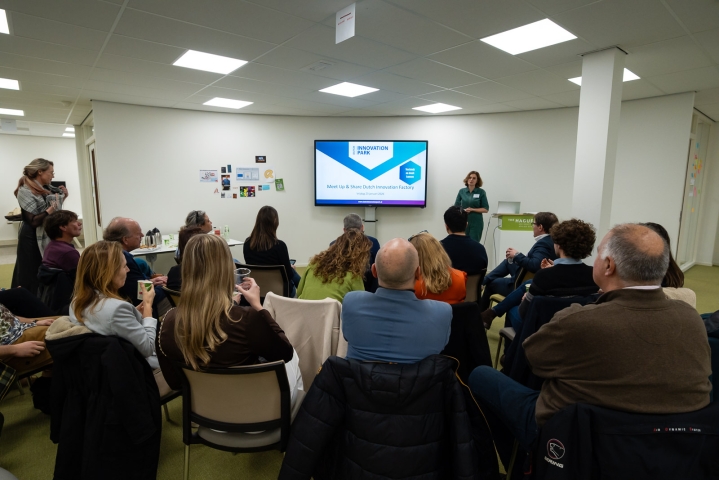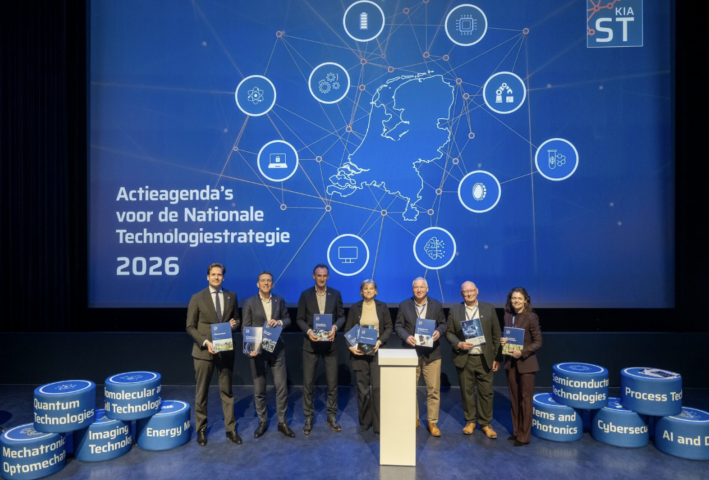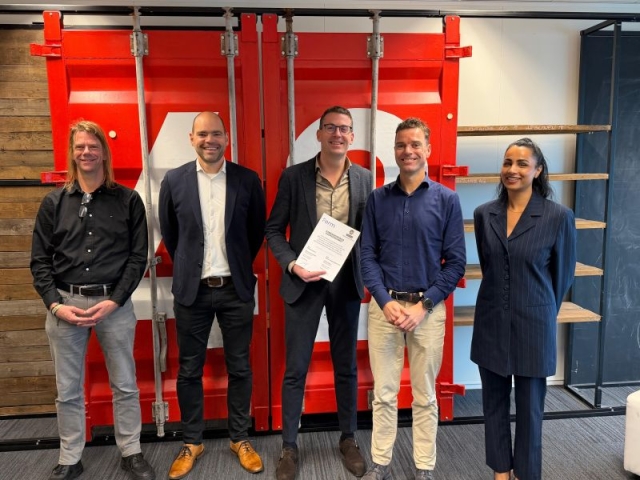ICSS Partners are Excited About the Future
The Impact Coalition Safety & Security (ICSS) partners have been devotedly working together for the past four years to enhance urban safety through smart technology. They are eager to continue this collaboration in the coming years. This was reflected in the evaluation conducted last summer, which highlighted the value of their partnership and the positive impact of their joint projects.
What is the Impact Coalition all about, again?
The Impact Coalition is the governing and agenda-setting body for the implementation of the safety & security agenda. ICSS was established by: the Police, the municipalities of Almere, Amsterdam, Apeldoorn, The Hague, and Eindhoven, The Hague Security Delta, and the Association of Dutch Municipalities (VNG). The goal of the coalition is to develop an ecosystem of smart (tech) solutions for urban challenges. By collaborating, municipalities, police, and partners make use of each other's experimental spaces, learn from one another, and co-develop innovative solutions.
ICSS meets the need for experimental opportunities and learning
In the evaluation, all involved parties expressed high satisfaction with the existence of ICSS and acknowledge the added value of the collaboration. ICSS aligns with the current issues and agendas of municipalities and the police, playing a crucial role in fostering local collaboration in the areas of (digital) innovation and data-driven practices. Additionally, it provides the necessary space for experimentation and learning opportunities for the parties involved. Each year, our partners carry out 15 to 20 projects, spanning one to two years. Some projects are new, while others continue from previous years. The total project budget varies annually between 0.5 and 1.7 million euros.
These projects focus on three key challenges:
1. Area-based safety using smart city applications
How can innovative technologies, such as sensors and smart cameras, be used to secure high-risk areas without compromising livability? This also involves examining shifting role patterns, where safety is increasingly seen as a shared responsibility between municipalities, police, businesses, and residents.
2. Cybersecurity of public and private digital infrastructures
How can both public and private digital infrastructure in municipalities remain secure? Given the shared responsibilities between the public and private sectors, this also considers who takes on which roles in this issue.
3. Realising the essential conditions for safety innovations
What conditions need to be met for municipalities to implement principles such as due diligence, transparency, data governance, privacy, and so on, in smartcity testbeds, and ultimately in daily practice? An important aspect is also determining what safeguards organisations can apply to responsibly handle data from citizens, businesses, and sensors in the public domain in a trusted matter. These issues, formulated in 2020 and still the focus of ongoing experiments, remain current and relevant. They will furthermore continue to provide a relevant framework for the coming years.
Scaling up: building on collective efforts
An important outcome of the evaluation is that innovations are being replicated across different cities. Instead of reinventing the wheel, successful innovations are continuously adapted and improved by other cities. There is continuous communication about who is working with whom, partners review each other's work, and establish operational contact. This not only strengthens the substantive collaboration, but also contributes to the scaling up of successful projects:
- The (further) development of crowd safety management systems (dashboard), which involves the continuous adjustment of work processes based on practical implementation;
- The (further) development of drone detection systems, which involves the continuous adjustment of work processes based on practical implementation;
- Joint development of Data Protection Impact Assessments (DPIA) for drone flights.
- The creation of the 151c Principles and guidelines for CCTV surveillance;
- The establishment of National Procurement Terms for cameras.
- Research by The Hague University of Applied Sciences, in which various cyber issues were identified and directly addressed.
Additionally, the ICSS has developed a widely supported research agenda, which is regularly updated and contributes to scientific papers and presentations at national and international conferences, such as the CCR Summit, iFestival, World Smart City Expo Barcelona, AI-MAPS, The Smart City Parade, HSD Café, and the NIK Themed Day on Policing. Furthermore, the ICSS plays an active role in the AI-MAPS consortium, which consists of more than 20 partners. The ICSS contributes its expertise to mapping the opportunities and risks of AI solutions.
International example of collaboration between different parties
The projects of ICSS include collaboration with approximately 100 companies, research institutions, public entities, and citizens. This is internationally regarded as a unique and leading example of a quadruple helix collaboration, where government, public authorities (police), businesses/industry, research institutions, and society work together to find solutions for urban challenges.
Sharing knowledge and experience
The success of ICSS in developing innovative solutions has inspired enthusiasm among the partners. They are excited about the future and are eager to share their knowledge and experience with others. This takes place through the online Smart Safety & Security Talks (SSST), which are organised on a monthly basis. On the events page of the Safe Smart Cities website, the Smart Talks are listed, and participants can directly register for a session.
Creating safer cities together
The ICSS partners are excited about the future and look forward to even greater collaboration with other municipalities, businesses, research institutions, and social organisations. The coming years present many opportunities for further growth and innovation. Are you already contributing to the development and experimentation of new solutions for urban safety and want to share your knowledge? Join ICSS as a partner and make a difference! Contact the ICSS Community Manager at info@veiligesmartcities.nl.
Grounded in the HSD Smart Secure Resilient Cities programme, the Impact Coalition Smart Safety & Security (ICSS) is dedicated to addressing urban safety challenges through technology, always upholding societal values, privacy, and ethics.
Photo: iStock/metamorworks


